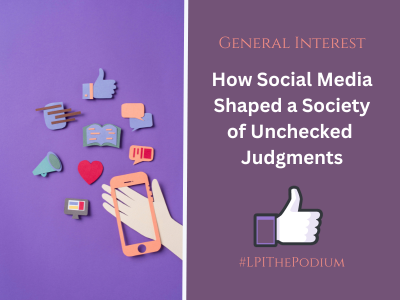
In the age of information, social media has emerged as both a boon and a bane. While it connects people across the globe and facilitates the exchange of ideas, it has also led to the rise of a society where opinions flow freely, often devoid of facts and empathy. This phenomenon has given rise to a culture where accountability and empathy seem to be dwindling, leaving many hurt and marginalized. In this article, we delve into the roots of this issue and explore how we can reclaim a more empathetic and understanding society.
The Rise of the Opinions Culture:
Before the digital revolution, opinions were primarily exchanged in person, among close friends, family, and colleagues. However, with the advent of social media platforms, everyone suddenly had a megaphone. Opinions started pouring in from all corners, often uninformed and hastily expressed.
The Echo Chamber Effect:
Social media algorithms tend to show us content that aligns with our existing beliefs, creating echo chambers. This leads to the reinforcement of opinions, discouraging critical thinking and the exploration of alternative perspectives.
The Instant Gratification Syndrome:
The ‘like’ and ‘share’ culture has conditioned us to seek immediate validation for our opinions. This can lead to hastily formed judgments and a lack of willingness to engage in thoughtful, nuanced discussions.
The Dehumanizing Screen Barrier:
Behind screens, it’s easy to forget that there are real people with feelings on the other side. This can make it easier to be callous or even cruel in our expressions, as we detach from the human element.
The Fact-Opinion Conundrum:
One of the most concerning aspects of this trend is the blurring of lines between facts and opinions. In an era where information is readily accessible, misinformation and half-truths can spread like wildfire. This leads to a society where ‘opinions’ are sometimes presented as ‘facts’, further muddling the discourse.
Fact-Checking: A Lost Art:
With the barrage of information, fact-checking often takes a back seat. We accept statements at face value, perpetuating falsehoods, and further polarizing society.
The Danger of Confirmation Bias:
When opinions are formed in echo chambers, even well-intentioned individuals can fall prey to confirmation bias. This undermines the pursuit of truth and contributes to the spread of misinformation.
The Empathy Deficiency:
As opinions fly freely, empathy often falls by the wayside. The digital screen acts as a barrier, making it easy to forget that there are real people with real feelings on the receiving end of our words.
The Disinhibition Effect:
Psychologically, the online environment can lead to a ‘disinhibition effect’, where individuals are more likely to express thoughts and feelings they might suppress in face-to-face interactions.
The Dehumanizing Effect of Anonymity:
Anonymous accounts and online personas can further dehumanize interactions. When we don’t see the impact of our words on others, we become desensitized to their feelings.
While social media has undoubtedly revolutionized communication, it has also given rise to a culture of unchecked opinions, often devoid of empathy and accountability. Reclaiming a more compassionate society requires conscious effort. Fact-checking, seeking diverse perspectives, and practicing empathy are crucial steps toward bridging the divide and fostering understanding in our digital age. Remember, behind every screen is a human being with a story, just like you.
Categorized in: General
| << previous | next >> |








